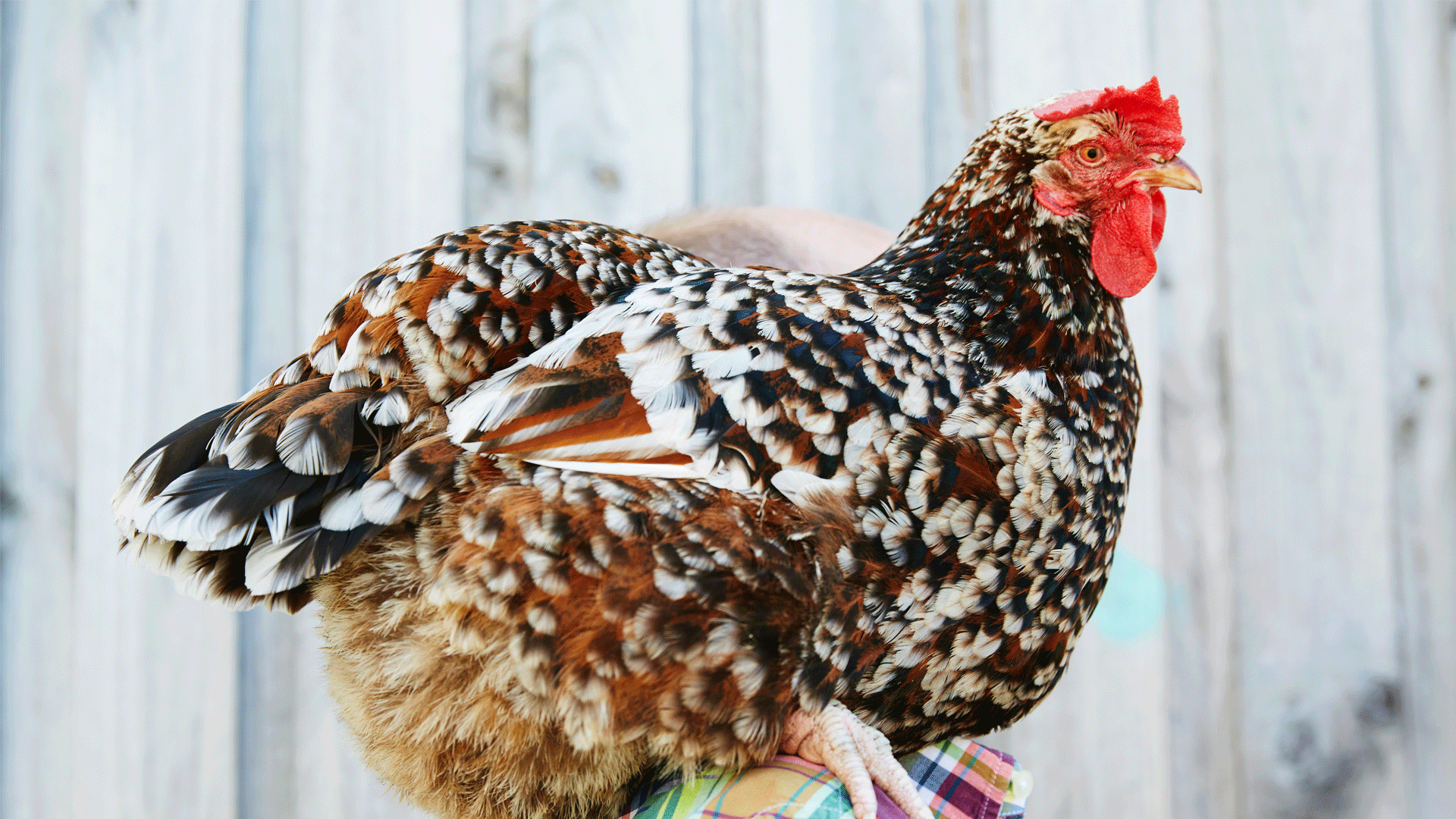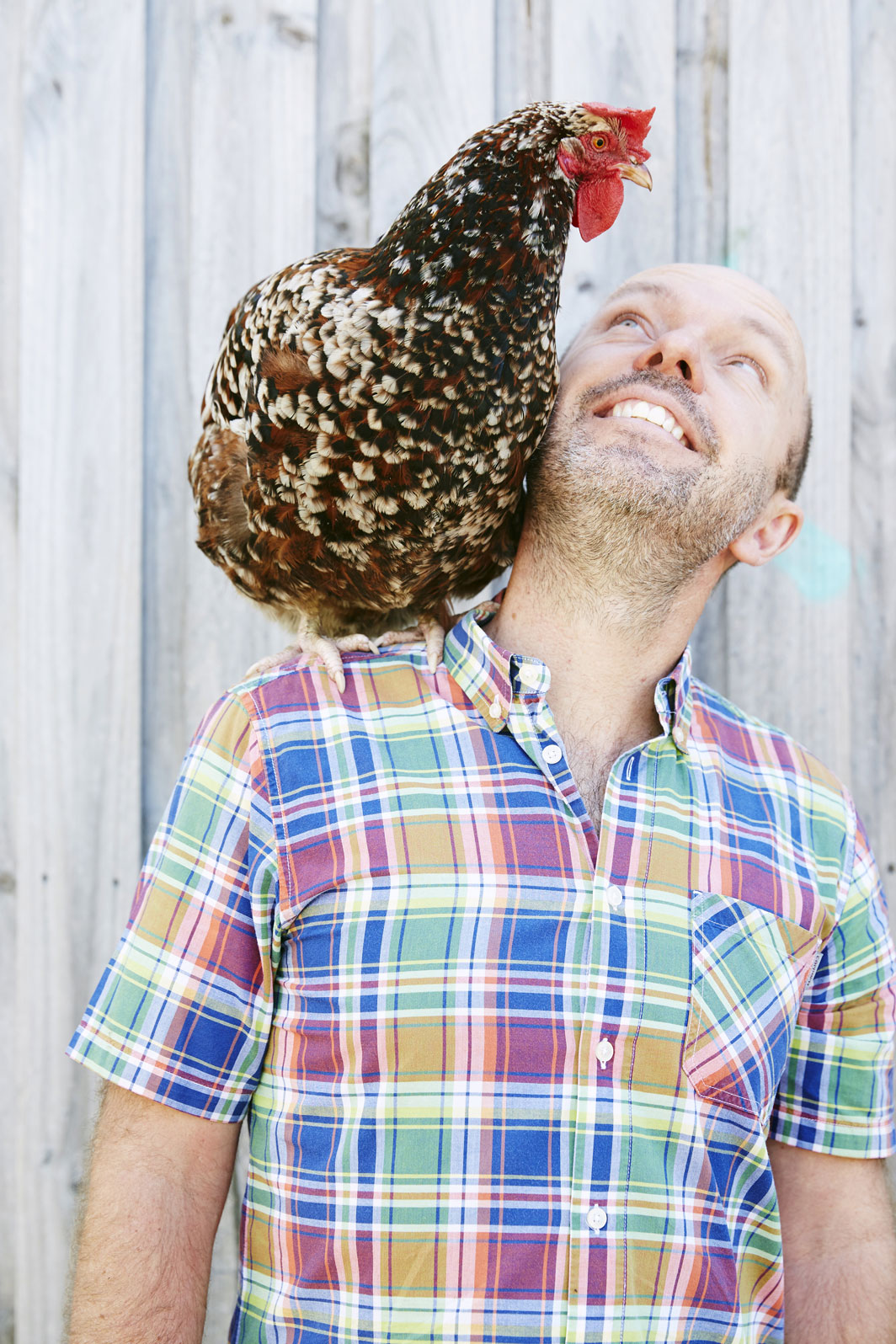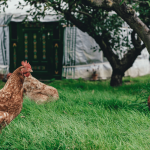
15 Mar A Guide To Keeping Backyard Chickens
We chat to Dave Ingham aka ‘Mr Chicken’ about his favourite backyard pet chooks, and how they can help your garden as well as being a great companion for kids, plus a few housekeeping tips.
Tell us a bit about yourself and where your interest of chickens began?
I’m a tall, greying, slightly overweight, middle aged family man with an energetic approach to life and a great love of birds, especially chooks. I have three sons aged 9, 10 and 11.
I started keeping chickens as a uni student, living in a share house in Marsfield. It was a big old place with a vast garden, just awaiting redevelopment. My housemates and I decided to grow, brew and make as much food as we could and chickens seemed a natural addition to the mix.
In 2001, I was speaking at an eco-living community event and, on a whim while waxing lyrical about the benefits of chooks, I decided to offer my spare coop and a couple of hens to the participants to trial hen keeping. That’s how Rent-A-Chook (a chicken coop renting business) was coined and began.
8 reasons why you should keep chickens
1. The eggs (the best you have ever tasted!)
2. They are the only revenue positive pet. It costs less to keep chickens than to buy eggs.
3. Chooks are wonderful recyclers of food waste, and omnivorous. Between 10 and 15 Kg of putrescibles food waste, including meat and sauces goes to my chooks a week. That’s between 500Kg and 750Kg a year that would otherwise end up in landfill.
4. They are charming, engaging creatures and very calming to watch, they make excellent pets.
5. They eat any and all ground dwelling bugs, including funnel webs and ticks. If there’s a bug they can reach, they’ll eat it.
6. If you have Trad (Tradescantia Fluminensis) formerly known as Wandering Jenny, or any other soft leaved weed that has taken over the unloved parts of your garden, don’t break a sweat digging it out, let the chooks do it for you. Just pen off the area you want cleared with a simple chicken wire henrun, throw in the chooks and watch!
7. You can also use the chooks to turn over your veggie patch at the end of the season. Just let the plants go to seed a bit and the weeds grow up and then in with the chooks – Kerpow! Cleared for next season.
8. Chook claws are perfect for turning over compost heaps for you. You’d almost think they evolved for just that purpose.
What breeds of chickens do you recommend?
Chooks are all one species (Gallus Gallus Domesticus) although there are many breeds and each breed has its own strengths and attributes you might like.

For starting out, first timers are best off with a good egg laying commercial cross breed like an ISA Brown or similar. These birds are placid, robust and prolific layers. The only downside is they are a little common-garden as a variety as compared with more beautiful pure breeds like the Wyandotte, Plymouth Rock, Sussex or Barnevelder. There is the Australorp which is the only recognised Australian hen breed. Inexplicably, it is black in colour. These are wonderful birds and every flock should have one.
I’m personally very fond of hens that lay eggs of different colours than the universal light brown egg. The Araucana which lays sky blue eggs, the Barnevelder that lays chocolate brown eggs and the Leghorn that lays white eggs are favourites.
How can we get our gardens chicken ready?
If you love your garden (as I do), put in a henrun. A simple waist high fence that will keep the chooks in their area for most of the time and you can let them out as often or as rarely as you like. But not to be confused with a coop which is weather protection and fox protection at night.
You may also wish to place a ring of stones or house bricks around the base of shallow rooted trees like citrus. This will stop the hens from scratching at the base of the tree or shrub and disturbing the roots.

What are the must-haves for your chicken coop?
You can go as gear-freak as you like, but there are very few must-haves:
1. The coop must be fox proof – secured at night and enclosed on all sides. If not, your chooks will be temporary pets…
2. A feeder and waterer – can be as simple as 2L milk bottles with holes cut in the sides.
3. Perches or perching space – a nice thick fallen gum tree branch works a treat, they are birds after all.
4. A nest box – can be anything; a lawnmower catcher, a pool chlorine bottle with the side cut-out, a repurposed plastic storage tub, wooden wine crate.
5. This one is very important for your enjoyment of the experience – the coop needs to be easy to clean. Don’t go making the job any harder than it should be!
Advertisement
How can kids get involved with helping to look after chickens?
Lots of ways! Feeding them and changing their water (daily). Collecting eggs (as often as they find them). Cleaning out the coop and composting the straw (fortnightly to monthly).
Keeping the hens off the back deck and out of the house. Arm them with water pistols and tell them they can only shoot the hen if it enters a prohibited area. You may not be able to successfully train the hen, but it keeps the kids engaged for hours preparing the ambush.
What can readers expect to find in your new book Backyard Chickens?
Foxy predators, cute chicks, heatwaves, a wild ride of a book! More seriously though, I’m a very practical person, I have also been selling chicken coops to Sydney suburbanites for 15 years, so readers can expect to find plenty of those practical solutions in the book. In that time, I’ve had to come up with countless practical solutions to ensure the chook keeping experience of my customers was worth recommending. Chooks make great pets wherever you live.

For more info about keeping chickens, check out Dave’s book; Backyard Chickens by Dave Ingham, published by Murdoch Books, $35, available now in all good bookstores nationally and online. 
Interview by Jenna Templeton




